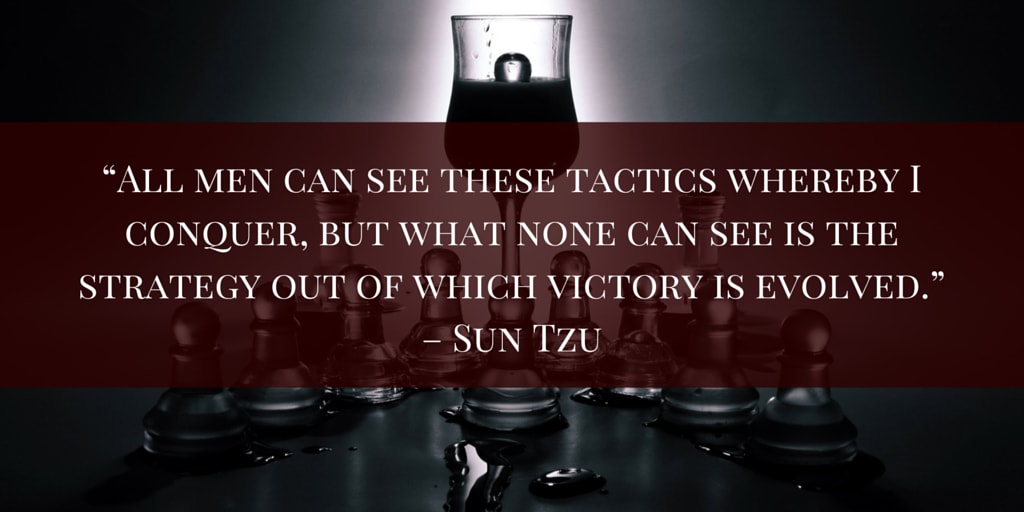Fortune tweeted an interesting link that caught my attention. It was a post about a CEO who held the belief that MBA degrees were worthless.
Strong word choice, worthless — as in, quite literally, having no worth. A degree that typically requires two years of extreme dedication, virtually every ounce of brainpower and free time, and a pretty penny or two (or thousands) holds no worth, no value, no use, no importance.
Being an MBA graduate myself, I naturally felt ever so slightly, just a tiny bit, infinitesimally slighted, especially since I received my degree only five months ago.
But I digress. After reading the post in its entirety, I retweeted my thoughts:
Oh boy. This CEO is grossly misinformed on what an MBA teaches you. Guess I found my next post topic! https://t.co/zO0x4jaGvn
— Brandon Hastings (@WritePrecisely) January 17, 2016
The CEO (who was also the author), Tien Tzuo, gives this advice in the post:
Don’t go to business school.
Beyond this, he minimizes the curriculum of the typical MBA down to being concerned about “[creating] a hit product,” reducing fixed costs, and competing on margins. He further expounds on how businesses today are rarely in the market for selling physical products, instead selling subscriptions.
He concludes with the need to create customizable services, noting that there’s “no MBA class for that.”
I guess Tzuo missed the point.
What he — and others with similar, narrow views on MBAs — failed to realize and (apparently) absorb from the MBA are the more abstract concepts. Sure, there were plenty of concrete ideas presented (like his mention of products and margins), but that wasn’t the essence of the degree.
The true value in the MBA was in learning how to think like a CEO.
In proceeding through the curriculum (and residencies in some cases), you not only accumulate knowledge, but also establish integrative connections to the various business functions (operations, marketing, finance, etc.).
As CEO, the head of the business, you must consider all of these aspects in making the decisions that affect the performance of your company.
And it’s not simply products and margins. It’s also people—employees and customers. Not understanding this overarching concept is what I believe led Tzuo to underestimate the worth of an MBA.
In a similar vein, Ryan Holmes (CEO of Hootsuite) shares his thoughts on MBAs — he skipped getting one (along with most of his undergrad). His words:
“…the MBA may not be the best choice anymore.”
Though, to be fair, Ryan notes that he doesn’t consider an MBA to be worthless.
However, his sentiment is clear: He (and some other prominent business figures) didn’t need an MBA to become CEOs or notable leaders. Their entrepreneurial spirit, self-induced drive and, in some cases, a little luck was enough.
But life isn’t the same for everyone. People take different paths. And an MBA may just be the key that opens the right door for some.
For a Richard Branson (no MBA), you may get a Tim Cook (MBA).
Perhaps a Mark Zuckerberg (no MBA) would be a Mary Barra (MBA).
Or a Bill Gates (no MBA) is a Jeffrey Immelt (MBA).
Whatever way you look at it, I for one believe it is incredibly shortsighted to view learning in any form as worthless, especially when so relevant. Maybe an MBA isn’t for everyone (and it’s not), but it’s certainly right for some.
But anyway, as I led with, I disagree with the idea that an MBA is worthless. Why?
Here’s my perspective and what I learned from getting my MBA.
A Business Has a Lot of Moving Parts
…and you’re accountable for all of them.
For those of us who spend most of our worktime focusing on our individual contributions to the organization, we tend to forget or be unaware of the many components that comprise an operating business beyond our daily function.
Customers, employees, offices, equipment, products, software, data, relationships — all elements interacting with one another every day to keep the business running. And as CEO, you’re the one individual ultimately responsible for all of them.

Sarah down in accounting? Your responsibility. Headquarters over on 5th? Accountable for that too. Company’s ERP system? Guess who!
An MBA provides you with the capacity to understand how each of these elements plays its own role in the business and how you, as the CEO, can use that understanding to make better decisions.
Decisions Can Be Tougher Than You Think
And speaking of decisions: When you consider the myriad areas of the business that could be affected by decision making at the highest level of an organization, even the smallest decisions can easily have an extremely large impact.

Just imagine what would happen if you decided marketing should roll out an expensive ad campaign for a new product about to launch, but you didn’t consider consulting with production or accounting.
Maybe the completion date for the product wasn’t near as close as you assumed it was. And maybe the company’s cash flow hasn’t been doing too well. So then maybe the ad campaign was both a waste of money and a drag on the books.
The woes of high-level decision making is understood by a CEO who is aware of all the moving parts of the business. Perhaps someone with business experience and/or a naturally high level of business sense could muster through it, but an MBA certainly prepares you beforehand.
Business Isn’t All About Numbers
Data, financials, statistics, accounting. The sheer focus on numbers is enough to drive you mad (they sure almost did me in during my graduate program).
As Tzou mentioned, there’s definitely coverage of calculating margins and costs. There’s also discussion of top-line and net revenue, among other humdrum financial concepts.
But numbers aren’t the only parts that make the business run. People are essential to business, whether as employees or customers.

Employees, who typically represent a significant portion of the business’ costs, provide the needed manpower to make the goods (or program the services) the business sells.
And customers are the ones who buy those goods, keeping the business in business.
Beyond simply extoling about margins, employee engagement, culture development, and all things customer are discussed in depth. An MBA isn’t so simplistic as to ignore the interaction and importance of people in business.
Believe it or not, there is an MBA class for that. (Several actually.)
Strategy is Essential
To win in business, you need some semblance of a strategy. And as business continues to accelerate, and innovative companies are outpaced by even more innovative companies that disrupt entire industries, strategy becomes even more essential.
Successful businesses do not merely stumble into being a market leader or being on the tips of everyone’s tongues. Behind these happenstances is a well-laid, carefully formulated strategy — a collection of tactical movements on a grand chess board that culminate in an overarching objective.

Of course the truly successful businesses formulate and reformulate their business strategy as conditions change and new information becomes available.
The importance of strategy — along with the integration of the numerous elements of a business in its formulation — is arguably the most discussed, most developed, and most hammered-home topic in an MBA.
And a CEO, business owner, or anyone wanting to hone their high-level business thinking would find an academically rigorous MBA program a great place to aid them in their business journey.
Connecting the Pieces
The business climate continues to shift and evolve as technology permits new ways of doing business, but certain business concepts still hold true.
What and how a business sells may change, but the parts that comprise it tend to remain the same.
These parts, and how they affect decision making and strategy formulation, are the “meat” of an MBA’s curriculum.
Is learning these concepts and applying them in business really worthless? Certainly not.
So to the CEO who believes such an endeavor is worthless (and anyone else who shares his opinion): I disagree, wholeheartedly.
Do you think an MBA is worthless? Why or why not? Share in the comments section below.
Image courtesy of Philippe Put on Flickr – http://bit.ly/1Qcphk2

